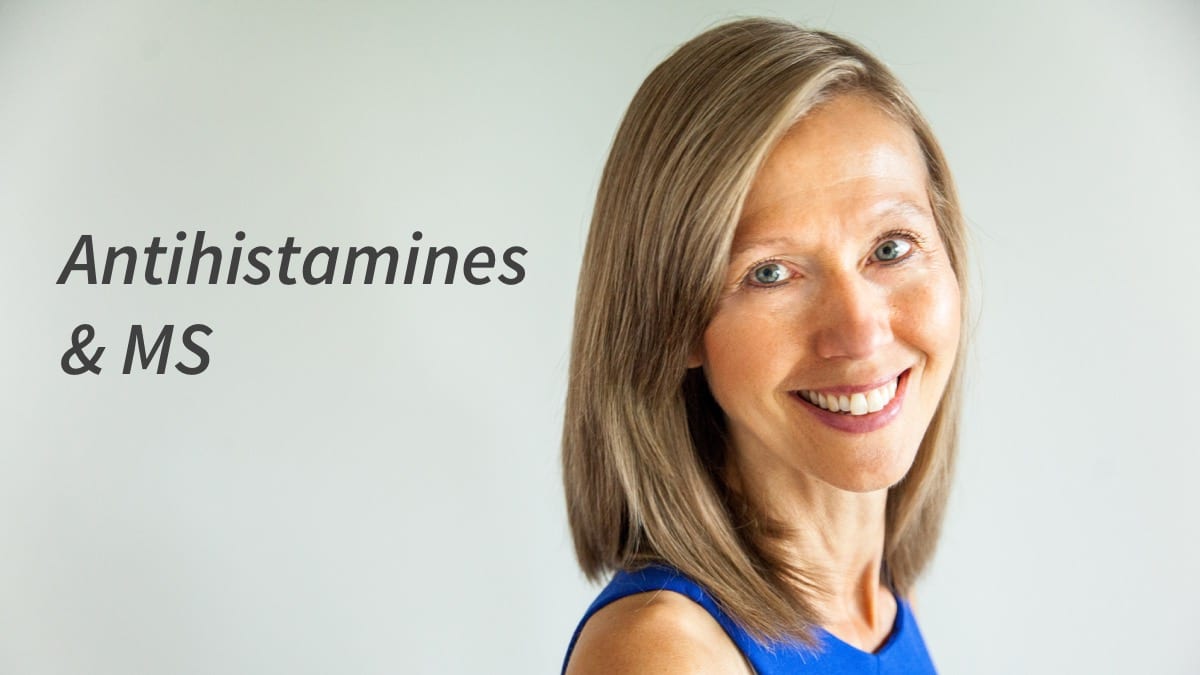
I was diagnosed with multiple sclerosis in 1988. In early 1989, I was introduced to the work of Dr. Maas, a neurologist in the Netherlands who had multiple sclerosis and treated many patients with multiple sclerosis. She found that antihistamines were very important in minimizing the damage of MS attacks, and that they helped her patients better manage the disease.
As I became aware of her findings I started corresponding with her. I began to use an antihistamine that she recommended and immediately found that my insomnia was resolved and I felt very peaceful, allowing me to start healing.
While antihistamines are most commonly associated with allergy relief, studies have shown that they could they offer significant benefits to those who suffer with MS.
Very recently I discovered an article discussing how antihistamines can be helpful in the treatment of parasites, as antihistamines will sedate worms, making it easier to treat them. I found this really interesting, as the majority of my students suffering with multiple sclerosis are infested with parasitic worms – which are more active at night.
In 2014, Dr. Alan MacDonald examined brains and spinal fluid of 10 patients that had died of multiple sclerosis. In 10 out of 10 samples tested he found many parasitic nematodes in the spinal fluid and brain tissue.
This is an incredibly relevant find because for approximately 100 years, veterinarians have known that when these nematodes are present the central nervous system of domestic animals, these animals exhibit symptoms identical to multiple sclerosis including poor balance, spasticity, drop foot, numbness, paralysis, and blindness.
Research shows that parasitic worms cause higher amounts of histamines to be produced in the body, which suppress the number of immune cells that target and destroy parasites.
My students are now using anti-parasitic therapies, including drugs, to target nematodes and other parasites and are experiencing dramatic symptom improvement very quickly.
These insights may prove to be very helpful in the recovery of multiple sclerosis. I created a video to explore the topic of antihistamines further, and I hope you share this information with others on their journey to live disease free.
For further information on the studies mentioned in this blog post, please visit:
Diphenhydramine As Aid for Anthelmintic (De-Worming) Drugs
Histamine 1 Receptor Blockade Enhances Eosinophil-Mediated Clearance of Adult Filarial Worms

Clinically diagnosed with multiple sclerosis at the age of 28, Pam chose an alternative approach to recovery. Now decades later and still symptom free, she coaches others on how to treat the root cause of chronic disease, using a holistic approach. She can teach you how, too.
Pam is the author of Become a Wellness Champion and founder of Live Disease Free. She is a wellness expert, coach and speaker.
The Live Disease Free Academy has helped hundreds of Wellness Champions in over 15 countries take charge of their health and experience profound improvements in their life.

